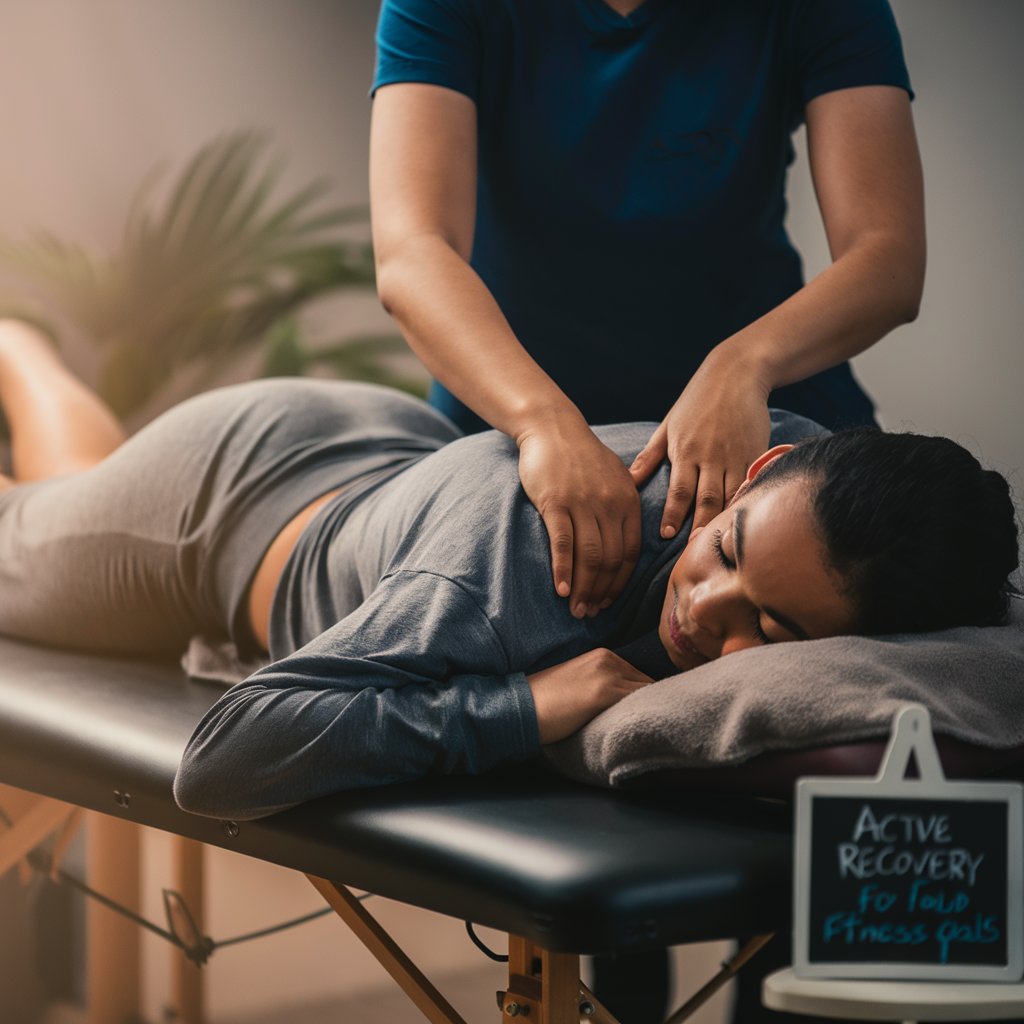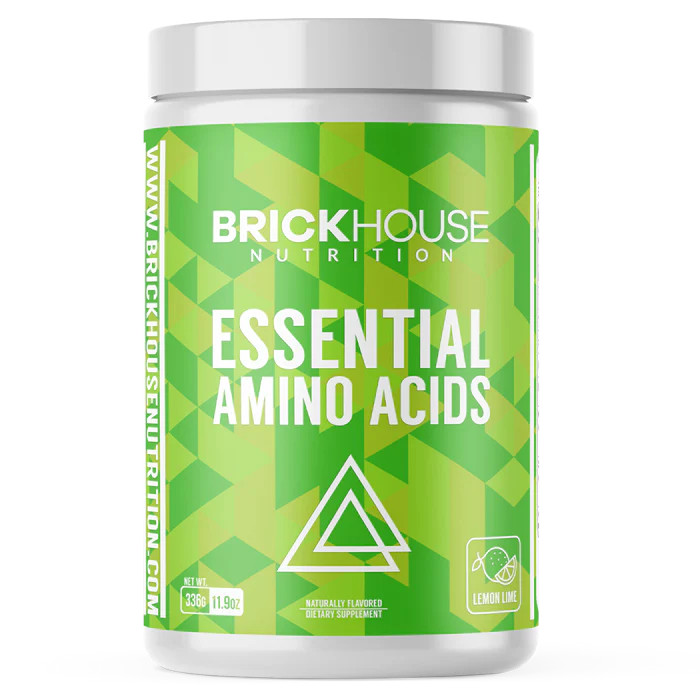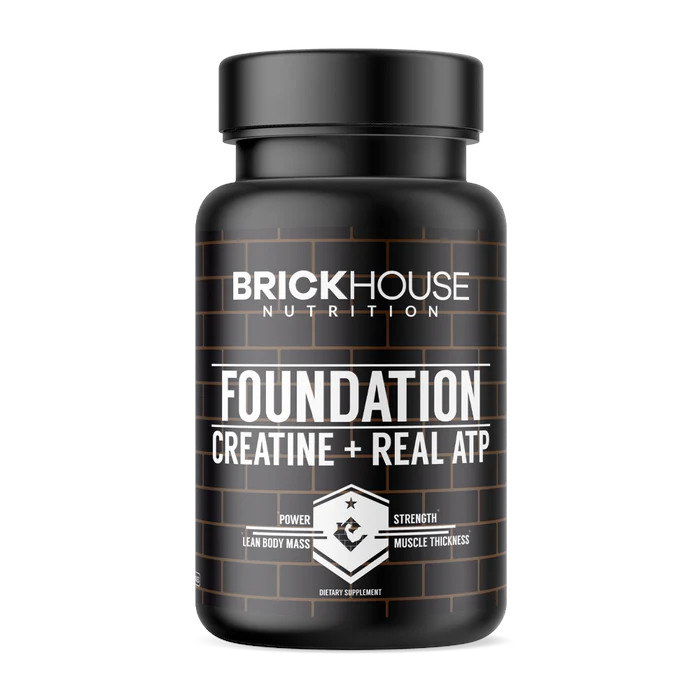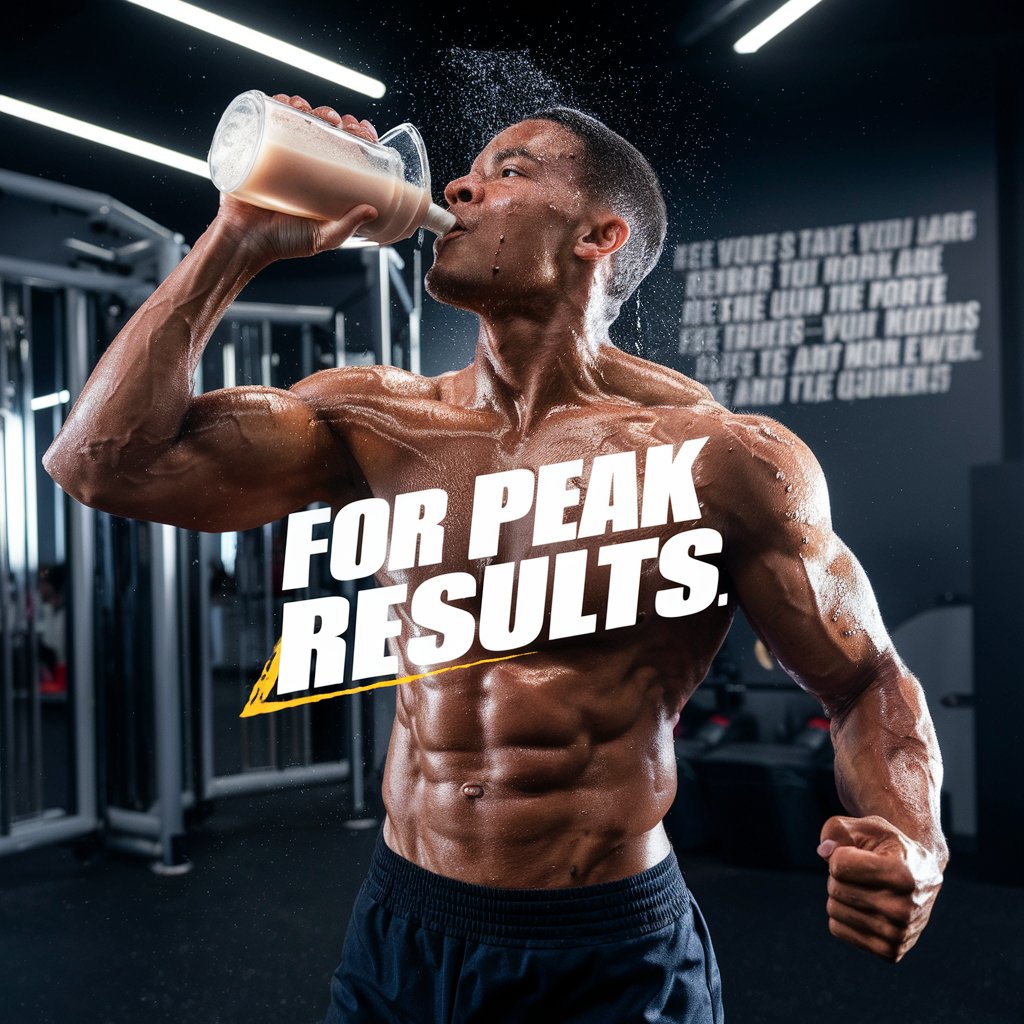Optimal Repair: Post-Workout Muscle Recovery for Peak Results
Explore post-workout muscle recovery tips to boost performance with nutrition, hydration, and rest strategies!

Factors Influencing Recovery
Got sore muscles? Well, muscle recovery is a bit of a puzzle—nutrition being one of its key pieces. Whatever you’re lifting, running, or stretching, knowing what to eat can make all the difference.
Protein: Your Muscles’ Best Friend
Protein is essential post-workout. Think of it as the building blocks your muscles need to fix themselves. Experts say you should aim for about 1.6 grams of protein per kilogram of your body weight daily to help your muscles grow. The International Society of Sports Nutrition suggests a range of 1.4-2.0 grams of protein per kilogram for beefing up and keeping those gains (source).
Don’t wait too long—ideally, you should down that protein shake or sandwich within two hours after your sweat session. Then, keep munching on protein-rich foods every three to five hours. Following a plant-based diet? No problem. Load up on soy, beans, and legumes to get your protein fix.
| You Weigh (kg) | Eat This Much Protein (grams) |
|---|---|
| 60 | 84 – 120 |
| 70 | 98 – 140 |
| 80 | 112 – 160 |
| 90 | 126 – 180 |
Carbs: The Unsung Hero
Now, let’s talk carbs. They’re not the enemy. Post-workout, carbs help refill your glycogen stores—that’s the energy your muscles hug tightly, which gets zapped during your workout. Depending on how hard you push yourself, your carb needs will vary.
During high-intensity workouts, carbs keep you going. Eating them afterward won’t just refill your energy tank—think of it as giving your muscles a bit of extra juice for repair and performance (source).
| Workout Intensity | Carbs You Need (grams) |
|---|---|
| Low (light activity) | 3-5 grams/kg |
| Moderate (endurance training) | 5-7 grams/kg |
| High (intense training) | 7-10 grams/kg |
Balancing your protein and carbs is key to bouncing back from a workout. Doing it right can boost your performance and lessen the aches and pains afterward. Get those nutrients right, and your muscles will thank you by staying strong and ready for the next round.
Knockout Components for Recovery
Getting back on your feet after a tough workout? It’s all about resting up, staying hydrated, eating right, getting a massage, and rocking those compression socks. Each of these steps helps your muscles bounce back stronger and faster.
Rest, Drink, Eat
Let’s keep it real: to let those muscles heal, you gotta give them some love. Rest, hydration, and a balanced diet are the names of the game. When you work out, tiny tears happen in your muscles. To fix them, you need sleep, plenty of water, and the right grub. Ignore this, and you’re looking at more injuries and longer pain.
Here’s the lowdown:
| What | How Much |
|---|---|
| Rest | 7-9 hours of sleep each night |
| Water | 3-4 liters a day (depends on your activity) |
| Food | A mix of protein, carbs, and good fats |
Sleeping enough can really boost your game. It helps with pain, muscle repair, and keeping your hormones in check (PubMed).
Massage: Your New Best Friend
Massages aren’t just for pampering. They have a real impact on flexibility and cutting down on soreness after you hit the gym. Many athletes use massages to stay on top of their game.
| Perk | What It Does |
|---|---|
| Flexibility | Makes muscles more stretchy and enhances movement |
| Less Soreness | Takes the edge off post-workout aches |
Research backs it up: massages can help combat those “I can’t move” feelings and leave you less wiped out after a workout (NCBI).

What’s the Deal with Compression Gear?
Compression garments aren’t just a trend. Athletes wear them because they help muscles recover faster. A study with German handball players showed these garments cut down recovery time when worn for 24-hour stretches.
They help with:
| Perk | How It Works |
|---|---|
| Lowered Soreness | Helps with muscle recovery and soreness |
| Better Performance | Keeps muscles warm and boosts blood flow |
Compression gear can really make a difference after tough workouts. Want more tips on what to eat for muscle recovery? Check out our pieces on muscle recovery foods and muscle recovery supplements.
Nutritional Considerations
Look, if you’re serious about boosting your fitness game and building those muscles, you’ve got to mind your nutrition. Especially protein. This bit’s all about why you need protein, where to get it if you’re plant-powered, and why whey protein is your gym buddy.
Protein Importance
Protein is your gym day’s best friend. Think of it as the fixer-upper for your muscles after all that sweat and effort. Aim for around 1.6 grams per kilo of body weight each day. In plain English, if you weigh 70 kg, that’s 112 grams of protein daily. And hey, timing matters – get some protein into you within two hours after your workout and keep the protein train running every few hours.
| Protein Intake (g) | Weight (kg) | Total Daily Protein (g) |
|---|---|---|
| 1.6 | 70 | 112 |
| 1.6 | 80 | 128 |
| 1.6 | 90 | 144 |
Plant-Based Protein Sources
For those going green and skipping the meat – no worries, plants have you covered. Soy, black beans, and chickpeas are your muscle food. Mix them into your meals, and you’re set. Here’s a little cheat sheet for you:
| Plant-Based Protein Source | Protein per 100g (g) |
|---|---|
| Soy (cooked) | 16 |
| Black Beans (cooked) | 9 |
| Chickpeas (cooked) | 8 |
Supplementing with Whey Protein
Whey protein – the superstar in the supplement world. It’s loaded with the good stuff your muscles need and gets absorbed fast. Perfect for when you really hammered it out with an intense workout. Have it right after the gym to help those muscles recover. Just remember, while it’s great for muscle repair, it won’t turn you into a superhero overnight.
Timing is key. Post-workout is clutch – down that shake after you lift. Want more tips on what to eat to speed up recovery? Check out our other articles on muscle recovery foods and muscle recovery supplements.
So there you have it – protein 101, made simple. Happy lifting!
Boost Your Muscle Recovery with These Supplements
Getting fit and building muscle needs more than just hard work in the gym. The right supplements can speed up muscle recovery after workouts. Let’s break down why Branched-Chain Amino Acids (BCAAs) and creatine are your best buds and how an all-around recovery plan makes a difference.
Branched-Chain Amino Acids (BCAAs)
BCAAs, made up of leucine, isoleucine, and valine, are crucial for healing muscles after exercise. These little powerhouses help muscles spring back faster, reduce pain, and cut back on fatigue and stress on muscles. They even fight off inflammation like a champ (NCBI).
Natural sources, like meat and eggs, are usually the best places to get your BCAAs. If you’re thinking about supplements, start taking them about a week before you hit the gym, and keep it up on workout days and after.
| BCAA Component | What It Does |
|---|---|
| Leucine | Fires up muscle protein creation |
| Isoleucine | Helps fix up muscles |
| Valine | Keeps energy levels up |

Creatine: The Muscle Fuel
Creatine is your go-to for more strength and power during hardcore activities like lifting weights or sprinting. It’s not as helpful for marathon runners, but it’s gold for those needing quick, intense bursts of energy. Creatine helps muscles recover faster from tough workouts by cutting down on muscle damage (Verywell Health).
Creatine gives you energy by restocking ATP (the energy molecule) in your muscles. If your workouts are intense, creatine should be part of your recovery plan.

The Full-Works Recovery
For the best post-workout recovery, think bigger. It’s not just about supplements; it’s about eating right, getting sleep, and managing stress (NASM Blog). Each piece plays a part in helping your body bounce back and get ready for the next gym session.
Pairing supplements with a wholesome recovery routine can speed up muscle healing and get you back to performing your best. Want more info? Check out our guides on muscle recovery supplements and muscle recovery foods for a balanced approach to recovery.
Why Sleep Matters
Getting enough sleep is super important if you want to bounce back after a workout. It helps you avoid getting hurt and boosts how well you do overall. Here’s a rundown on how snoozing affects muscle recovery, including how long you should sleep and why your body clock matters.
How Much Sleep Matters
The amount of sleep you get can totally mess with—or help protect—your muscles. If you’re into sports or hitting the gym hard, beware: sleeping less and working out more can spell trouble. Basically, if you cut back on sleep while pushing harder at the gym, you’re setting yourself up for injuries. Sleep’s like the secret ingredient for better performance, less pain, and faster muscle healing.
| Sleep Duration | Injury Risk |
|---|---|
| 7+ hours | Low |
| 6 hours | Moderate |
| 5 hours | High |
| Less than 5 hours | Very High |
Keeping tabs on how much you sleep can be a lifesaver. It helps you know when you need more rest so you won’t get hurt. Practicing good sleep habits is crucial for anyone beating up their body with tough workouts.
Why Your Body Clock Matters
Your internal clock, or circadian rhythm, is like your body’s schedule and it has a huge impact on how you recover. It controls a lot of things, like when your body repairs muscles, fights inflammation, and heals. So, if you’re not sleeping well, you’re throwing off your body’s natural repair shop.
Skipping out on sleep messes with your body’s healing process. But sticking to a sleep schedule can make a big difference, helping your muscles bounce back quicker and stronger.
| Time of Day | Impact on Recovery |
|---|---|
| Morning | Hormones are buzzing, best time for recovery |
| Afternoon | Energy dip, good for chilling or light activities |
| Evening | Hormone drop, winding down for sleep |
If you sleep in sync with your body clock, you’ll recover better and lower your injury risk. Don’t sleep on this—make rest a part of your routine. For more tips on recovery, check out our articles on muscle recovery supplements and muscle recovery foods.
Advanced Recovery Strategies
Hydration is key for bouncing back after any tough workout. Knowing why electrolytes matter, the ins and outs of sports drinks versus good old water, and how to stay properly hydrated can make a world of difference for anyone into fitness or bodybuilding.
Electrolytes and Performance
Ever wonder why you feel like a noodle after a sweat session? Blame electrolytes. These little guys—sodium, potassium, and chloride—keep your muscles and nerves talking. They’re basically the body’s messengers (Johns Hopkins Medicine). When your workout turns you into a sweat machine, you’re losing a ton of these vital nutrients, which can cause cramps and mess with your performance.
| Electrolyte | Function | Lost During Exercise |
|---|---|---|
| Sodium | Keeps fluids balanced | High |
| Potassium | Helps muscles contract | Moderate |
| Chloride | Keeps you hydrated | Moderate |

Sports Drinks vs. Water
Not all workouts are created equal, and neither are the drinks that keep you going. For a quick, easy workout, stick with water. It’s got your back for hydration. But if you’re in for the long haul—like an endurance beast—sports drinks are your friend. They help you replace those lost electrolytes and keep you from hitting the wall.
Here’s a quick cheat sheet:
| Activity Duration | Recommended Drink |
|---|---|
| Less than 60 minutes | Water |
| 60 – 90 minutes | Sports drink with electrolytes |
| Longer than 90 minutes | Sports drink with electrolytes |
Optimal Hydration Practices
Wanna know the secret to superior recovery? Start sipping right.
- Before You Sweat: Down about 500 – 600 ml of water a few hours ahead (NCBI).
- Mid-Workout: Drink up regularly. Waiting till you’re parched means you’re already behind on hydration (Johns Hopkins Medicine).
- Check Your Glow: Yes, check your pee. Straw yellow means you’re good to go.
Getting your hydration game on point not only speeds up recovery but also cranks up your workout efficiency. So next time you hit the gym or the track, remember to stay wet—and no, not like that. Hydrated muscles are happy muscles, paving the way for peak performance and gains.

